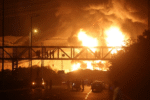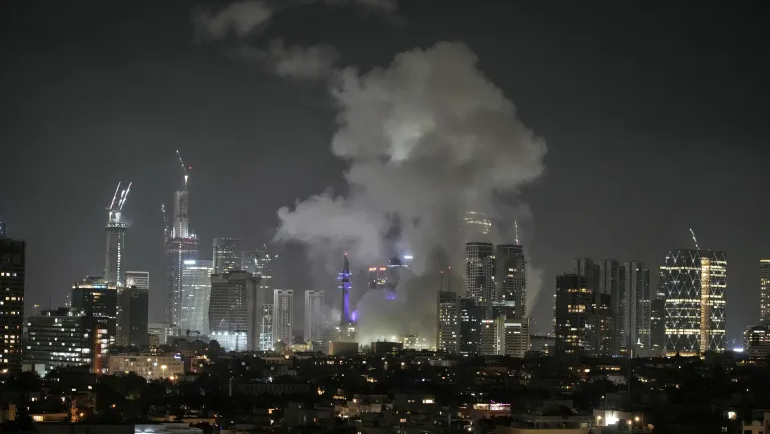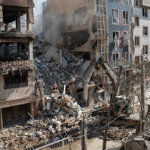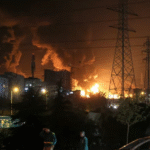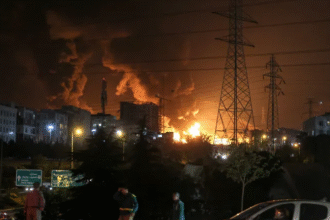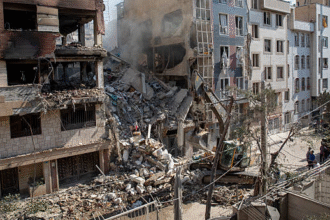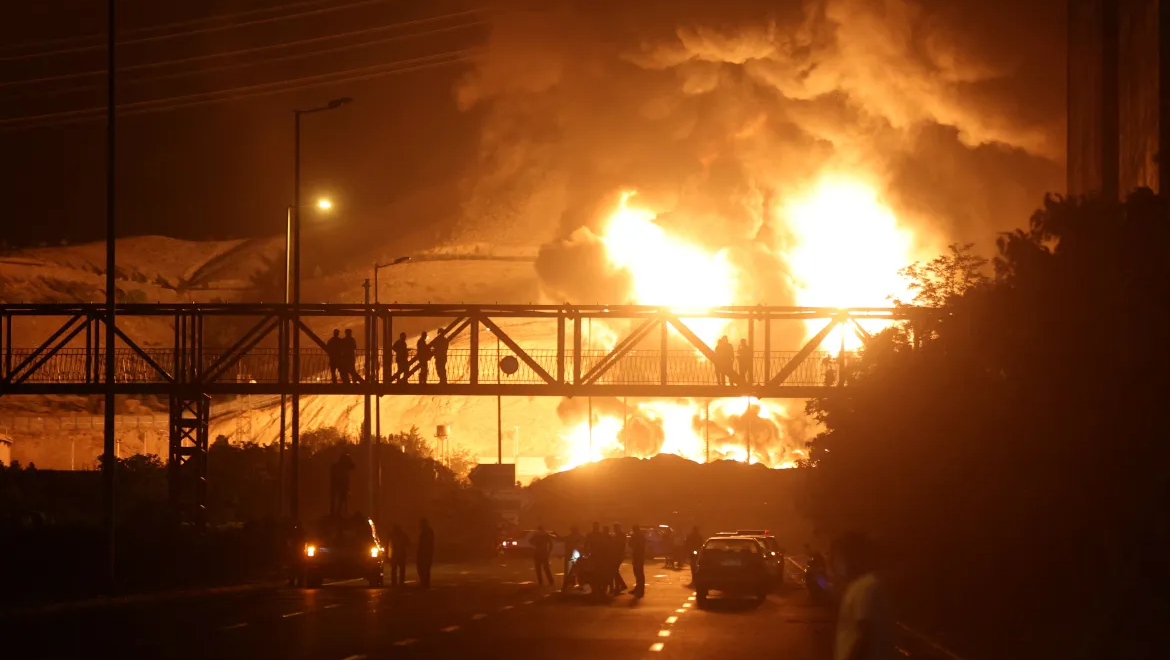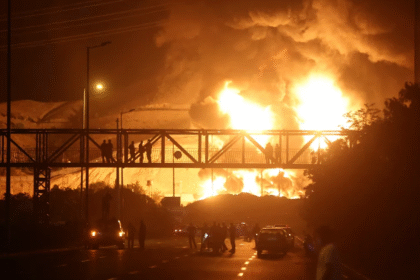Tel Aviv and Jerusalem Under Fire as Iran Retaliates in Fury Over Israeli Strikes on Its Nuclear Facilities and Top Military Commanders

Explosions Rock Israel Amid Iran’s Vow of Full Retaliation
The skies over Tel Aviv and Jerusalem lit up on Friday night as sirens wailed and explosions thundered through the cities. Iran launched waves of ballistic missiles at Israel, striking back just hours after a devastating Israeli operation targeted Tehran’s nuclear facilities and top Iranian military leaders.
Iranian state media reported that dozens of military and strategic sites in Israel were hit in three waves of coordinated missile attacks, in what Tehran called a “crushing and precise” response approved by Supreme Leader Ayatollah Ali Khamenei.
“The Zionist regime will not remain unscathed from the consequences of its crime. The Iranian nation must be guaranteed that our response will not be half-measured,”
— Ayatollah Khamenei
The attack was a direct response to Israeli airstrikes earlier that day, which reportedly killed several high-ranking Iranian officials, including IRGC chief Hossein Salami and Armed Forces Chief of Staff Mohammed Bagheri.

Destruction in Tel Aviv: Civilian Zones Targeted
Despite Israeli claims that less than 100 missiles were launched and most were intercepted, the damage on the ground painted a different picture.
In central Tel Aviv, a modern apartment complex was hit, causing intense fires and sending black smoke billowing into the night sky. Another residential building nearby also suffered major structural damage, with shattered windows and mangled metal hanging off its façade.
According to Israeli media outlet Haaretz, at least 40 people were injured, and two civilians were reportedly trapped in a collapsed building.
“This was an extensive volley of ballistic missiles, something that Tel Aviv is not used to… The psychological effect of seeing damaged homes and emergency workers digging through rubble is massive,”
— Al Jazeera’s Nour Odeh, reporting from Amman

US Involvement and Regional Fallout
The United States military assisted Israel in intercepting several incoming missiles, as confirmed by sources speaking to Reuters and the Associated Press.
Meanwhile, Iran closed its airspace until 2 PM local time on Saturday, and activated its air defense systems in Tehran, preparing for further Israeli retaliation.
The situation continues to evolve rapidly, with Israeli Prime Minister Benjamin Netanyahu issuing multiple warnings and claiming that more Iranian attacks are expected.
“As we achieve our objective, we are also clearing the path for you to achieve your freedom. The regime does not know what hit them—or what will hit them,”
— Benjamin Netanyahu, addressing the Iranian people

“Gates of Hell Will Open”: Iran’s Threat Intensifies
Following the deadly Israeli operation earlier on Friday, which targeted over 200 strategic sites across Iran, including its nuclear facilities in Isfahan, Fordo, and Natanz, Iran was quick to promise vengeance.
In a strongly worded letter broadcast on Iranian state TV, newly appointed IRGC commander Major-General Mohammed Pakpour promised a brutal reckoning.
“The gates of hell will open to the child-killing regime,”
— Major-General Mohammed Pakpour
Iran’s ambassador to the UN, Amir Saeid Iravani, reported 78 deaths and over 320 injuries, including women and children, from the Israeli attacks.
While Iran’s Atomic Energy Agency downplayed the damage to nuclear sites, the International Atomic Energy Agency (IAEA) expressed concerns about radiological and chemical contamination, particularly at the Natanz enrichment site.

Rising Global Alarm and Uncertain Future
The international community has been watching closely, with increasing fears that this Israel-Iran showdown could spiral into a regional or even global conflict.
The scale of destruction, the targeting of nuclear assets, and the high death tolls on both sides suggest a point of no return may be approaching.

Conclusion
What began as a deadly Israeli airstrike has now escalated into direct missile warfare, plunging the region into its most dangerous confrontation in decades. With nuclear facilities targeted, top generals killed, and civilian areas bombed, the threat of a wider war looms large. Both sides have shown they are not backing down — and the human cost is only growing.

What do you think?
Do you believe this escalation between Israel and Iran could spark a larger war in the Middle East or even beyond? Can diplomacy still work, or has the red line already been crossed?
We want to hear your perspective — drop your thoughts in the comments below.







